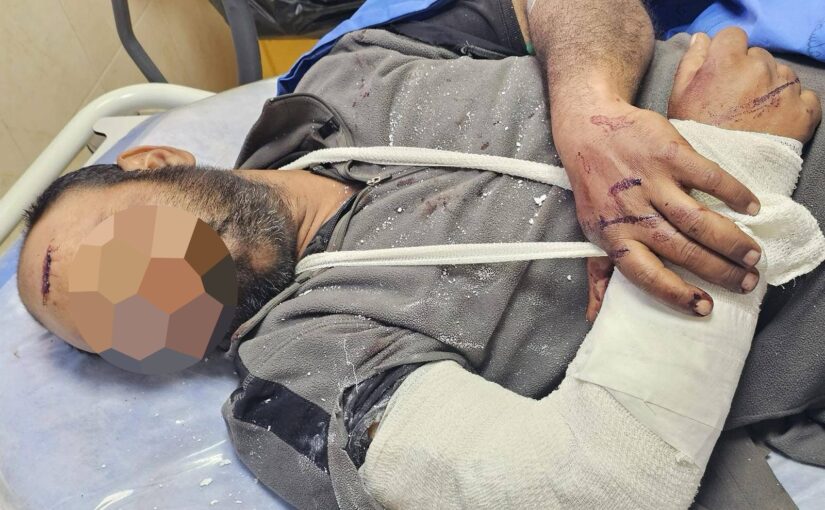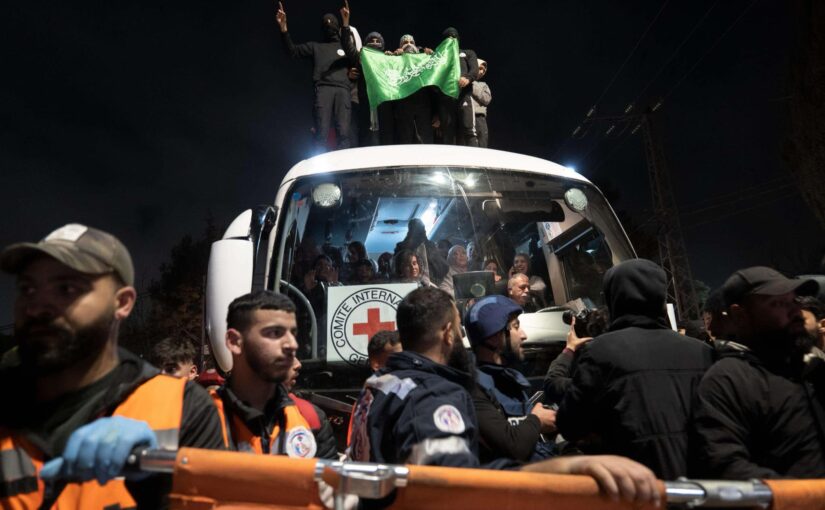Category: Reports
-
Two Palestinian shepherds hospitalized following brutal attack by Israeli settlers in Khirbet Hammamat al-Maleh al-Meetah
On March 11, 2025, at least six Israeli settlers violently attacked two Palestinian shepherds in Khirbet Hammamat al-Maleh al-Meetah in the northern Jordan Valley. The brothers, Ghanem Eid Zawahra and Muhammad Eid Zawahra, were shepherding on Palestinian land when a black settler vehicle approached them. Settlers exited the vehicle and beat the shepherds with iron…
-
What Does Israel Want in The West Bank?
Northern West Bank By Diana Khwaelid Israel is carrying out massive military operations to displace residents of camps in the northern West Bank, unprecedented since the Second Intifada. Since the seventh of October, Israeli attacks on West Bank cities, especially in the north, have not stopped. We are talking about the cities of Jenin, Tulkarm, Tubas,…
-
The Release of Prisoners and the Ceasefire in Gaza
By: Diana Khwaelid21 January 2025 After a year and two months of suffering, displacement and genocide, the ceasefire heralds great joy on the streets of Palestine. But with Israeli forces stepping up aggression in the West Bank, Palestinians fear the war of annihilation has not ended, only moved. Ramallah, West Bank — Celebrations bloomed in…


